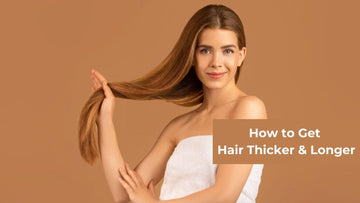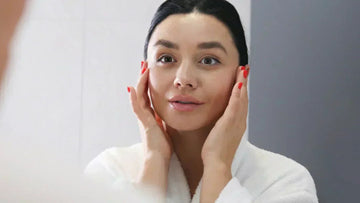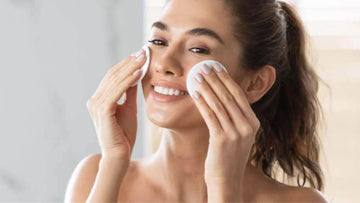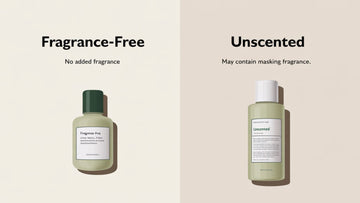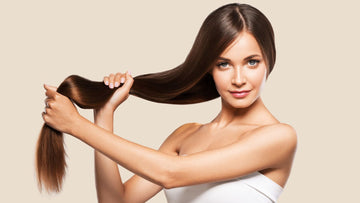When it comes to hair, many of us desire a luscious mane that is not only long but also thick and healthy. While genetics play a significant role in our hair’s texture and density, there are plenty of ways to promote hair growth and thickness. In this blog, we’ll explore practical tips and tricks on how to get hair thicker and longer, allowing you to achieve the look you've always wanted.
Understanding Hair Thickness and Density
Before diving into the tips, it's essential to understand the difference between hair thickness and density. Hair thickness refers to the individual strand's width, while hair density pertains to the number of hair strands on your scalp. Both factors contribute to the overall appearance of fullness and volume in your hair.
Nourish Your Hair from Within
One of the first steps in achieving thicker hair is to focus on your diet. Incorporating foods rich in vitamins and minerals can greatly affect hair health. Biotin, zinc, and vitamin E are particularly beneficial. Foods like eggs, nuts, spinach, and avocados can help nourish your hair follicles. Additionally, staying hydrated by drinking plenty of water is crucial for maintaining optimal hair health.
Use the Right Hair Care Products
Choosing the right hair care products can make a significant difference in how to make hair thick. Look for shampoos and conditioners that are specifically formulated to add volume and thickness. Ingredients such as keratin, collagen, and castor oil are excellent for promoting hair growth. Moreover, consider using a leave-in conditioner or a volumizing spray to help add body to your hair.
Avoid Over-Washing
While keeping your hair clean is important, washing it too often can strip away natural oils that are vital for maintaining hair thickness. Aim to wash your hair two to three times a week. This allows your scalp to produce the natural oils that can help moisturize and nourish your strands.
Incorporate Scalp Massages
Another effective tip for getting thicker hair is to incorporate scalp massages into your routine. Massaging your scalp for a few minutes daily increases blood circulation, which can stimulate hair follicles. You can use natural oils, such as coconut or olive oil, during your massage for added nourishment.
Be Mindful of Heat Styling
Heat styling tools can cause significant damage to your hair, leading to breakage and thinning. If you're trying how to grow thicker hair, it's essential to minimize your use of blow dryers, curling irons, and straighteners. When you do use them, always apply a heat protectant spray to shield your strands from damage.
Opt for Regular Trims
While it may seem counterintuitive, regular trims can actually promote healthier and thicker hair. Getting rid of split ends prevents further breakage, allowing your hair to grow longer over time. Aim for a trim every 6 to 8 weeks to keep your ends healthy.
Consider Hair Supplements
If you’re looking for a more direct approach on how to get denser hair, consider taking hair supplements. Look for products that contain biotin, collagen, and other hair-supporting vitamins. Always consult with a healthcare professional before starting any supplement to ensure it’s right for you.
Explore Natural Remedies
Many natural remedies can contribute to how to grow thicker hair. For instance, aloe vera is known for its soothing properties and can help promote a healthy scalp. Applying aloe vera gel directly to your scalp can provide moisture and nourishment.
Another effective remedy is fenugreek seeds. Soak them overnight, grind them into a paste, and apply them to your scalp. Leave it on for about 30 minutes before rinsing. Fenugreek is rich in protein and nicotinic acid, which are known to strengthen hair and promote growth.
Choose the Right Hairstyles
Certain hairstyles can help protect your hair and prevent breakage. Avoid tight hairstyles that can pull on the hair shaft and lead to damage. Opt for loose buns, braids, or ponytails that minimize tension on the scalp. Additionally, using soft hair ties can prevent snagging and breakage.
Protect Your Hair from Environmental Damage
Environmental factors such as sun exposure, pollution, and harsh weather can take a toll on your hair’s health. To protect your hair, consider wearing hats or scarves when you're out in the sun for extended periods. Additionally, using UV protection hair sprays can help shield your strands from harmful rays.

